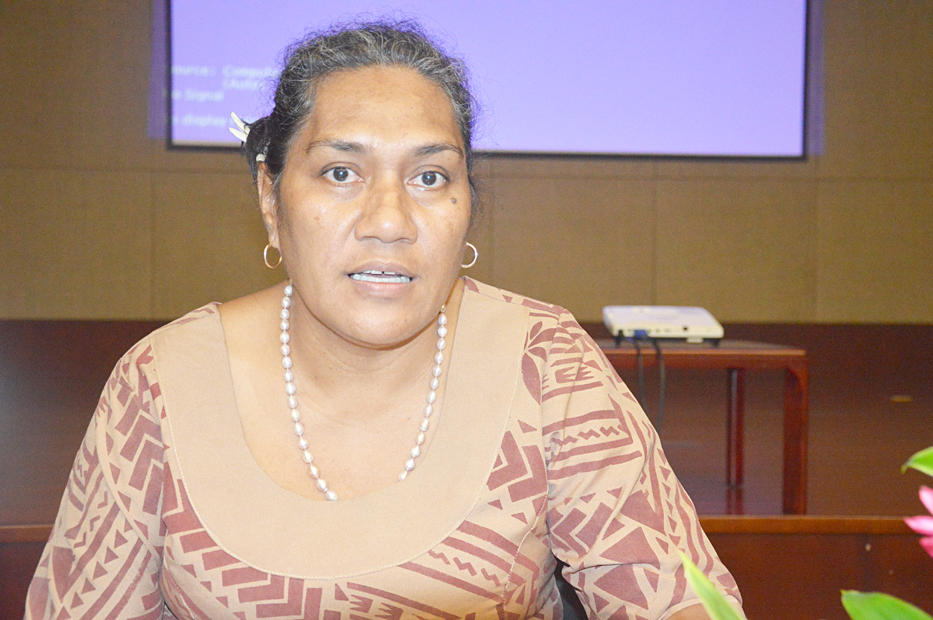By Mataeliga Pio Sioa

The Samoa Bureau of Statistics has earned the rare honour of being voted into the exclusive circle of countries in the UN Statistical Commission.
No other Pacific Island country has stepped up to the very top of the UN body responsible for setting statistical methodologies or standards for all countries to uphold.
Samoa is one of only 24 countries to sit in the Commission that represents all the 5 world regions of the UN.
Credit for the elevation of status for Samoa is the recognition of hard, diligent statistical work that impressed both the ESCAP and the SPC.
The two regional organisations rallied enough support for Samoa to be voted a member of the Commission for the next four years.
ESCAP is the Economic and Social Commission for Asia and the Pacific that serves as the United Nations’ regional hub promoting cooperation among member countries of the region.
SPC or Secretariat for the Pacific Community represents 26 Forum Island countries and territory members.
Samoa was lumped under the Asia Pacific Region and was relegated to observer status until it was finally able to make the breakthrough to hold one of the select seats for the Commission.
The Government Statistician, Ali’imuamua Ms. Malaefono Ta’aloga, agreed that recognition of dedicated work won Samoa a seat at the UN Commission.
“But it’s not a rocking chair for Samoa but a working chair,” Ali’imuamua quoted a popular saying in local political circles.
“Samoa opens the doorway for small island countries with populations of less than a million people to voice their special needs for the Commission to address directly.
“We have to contrast for the Commission the needs of countries like Samoa with a population of 200 thousand or Tuvalu with only 10 thousand, to countries with populations of up to 10s of millions.”
Ali’imalemanu pointed to seasonal changes in the climate as a contrasting example of issues that are easily overlooked for the islands countries.
The tropical climates in the Pacific Islands remain constant throughout the year whereas in bigger regions of the world, it changes from cold winters to hot summers.
These changes do have an impact on the standards and methodologies the Commission decides should apply across all the UN world regions.
“A standard questionnaire will keep to the approved methodology for the collection of data to ensure it is easier to tabulate all across.
“But some of those questions may suit bigger world regions but not small islands like we have in our Pacific region.”
Ali’imalemanu readily accepts, however, that representing the island members is going to need a lot of co-ordination work and fronting up by each country with their needs and updated work progress.
To make that possible Samoa is going to have to work closely with the SPC.
“The SPC works with all the member countries of the region so we will have to work closely with them to see what is needed for Samoa to take up with the Commission.
“When we turn up for the Commission during annual sessions, we must be fully briefed on what our island region needs, so we can state our case effectively.
“ These Commission meetings are attended by UN agencies and other donor organisations that will listen in to the issues raised.
“What they hear will go a long way in determining where they believe will do the most good with their assistance and that is why it is very important for Samoa to put across a strong case for the region.”
Ali’imuamua pointed to the benefits Samoa has reaped already with donor support, from the success of the partnership system with Government Ministries and State Owner Enterprises, SOEs.
Instead of the Bureau working in isolation it has enjoyed huge success by building on its partnership system.
Recently they were able to extend it to non-governmental bodies like organisations involved with disabilities.
Samoa’s initiative has led to putting together statistical data on disability for donor organisations like UNICEF to become convinced enough to help offer funding support.
It also led to the launching of a Pacific Group for disabilities with Samoa as the host country.
The formula for success Ali’imalemanu wants to encourage in the island members is working together in partnership on statistical work the Bureau now enjoys in Samoa.
“Government support is also one of the reasons for making the work possible like our national census that Samoa managed to fund on its own since 2011.”
The one other challenge that the Government Statistician wants to see in the coming years is for island members to be more forthcoming and outspoken of their needs.
“ We need everyone to speak up rather than remain passive, either shy or reluctant to be heard.”
Samoa is expected to attend the first meeting of the Statistical Committee as a member for its annual session next year in March 2021.

